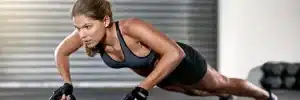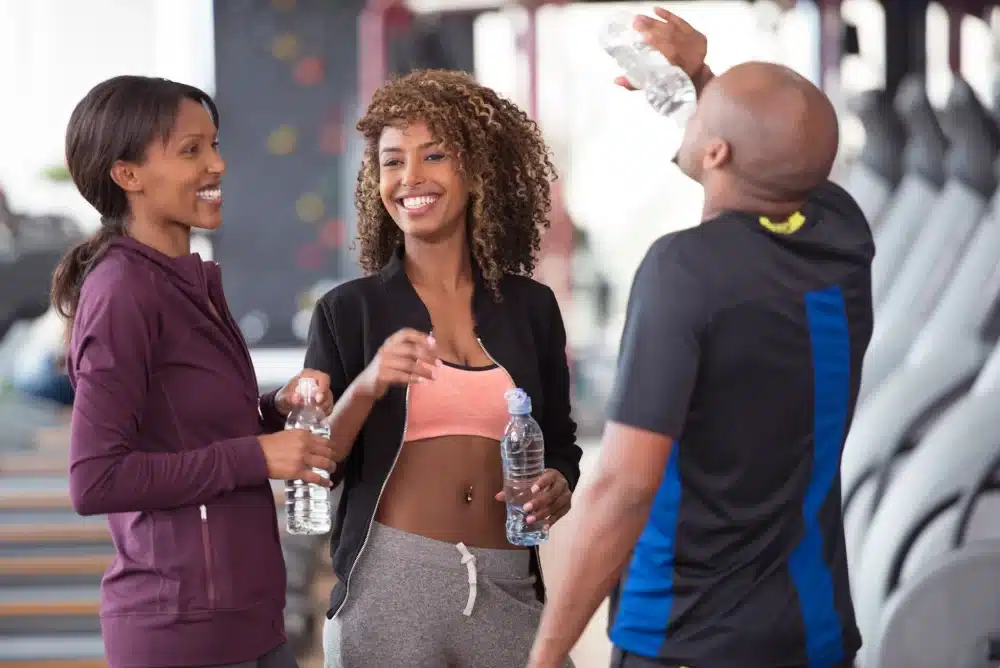Hydration for athletes
A tailored hydration plan for athletes, based on an athlete’s fluid and sodium loss has the potential to improve anaerobic power, attention, and heart rate recovery times and hence the athletic performance. Athletes don’t often seek personalized data and tend more to go with advice from others or how they feel. What is highlighted from the study results is that athletes both recreational and ‘hard trainers’, rarely consume sufficient fluid and electrolytes just prior to, or during training and competition.

When it comes to reaping the rewards for the amount of time and energy put into training for competitive athletes engaging in frequent rigorous and prolonged training sessions, additional sodium and a better hydration plan tailored to their individual physiology may significantly improve anaerobic and neurocognitive performance during a moderate to the hard training session as well as heart rate recovery from this session.
Suboptimal hydration strategies during training and competition are well known to reduce athletic performance through increased physiological stress. A loss of as little as 1-2% of body mass through sweat loss causes an increase in heart rate, core temperature, muscle glycogen use, as well as a decrease in cardiac output, cognitive awareness, anaerobic power, and time to exhaustion. Inadequate replacement of sodium, lost in sweat, is thought to intensify the decline of these factors.
Hydration beverages that replace both fluid and electrolytes lost through sweat are widely available and popular in the sports drink market. However, many commercially available sports drinks do not supply enough sodium to replace the amount lost through sweat indicating that a personalized hydration strategy rather than a universal plan to mitigate dehydration imbalances could be the strategy to improve athletic performance.
Guide:
Sweat Assessment Absolute sweat rate (L•hr.−1) 1.3 ± 0.6
Relative sweat rate (mL•kg−1 •hr.− 1) 18.8 ± 7.5
Sodium Loss (mmol•L− 1) 24.6 ± 7.1 or 500-700mg/hr
Hydration and Athletic Performance
Past research using questionnaires has shown that athletes seldom have a thorough understanding of what they should be drinking, how much they should be drinking, or how often they should be drinking for their athletic performance. Good knowledge of hydration and intake of micro and macronutrients is often lacking in these areas of nutrition. Instead, there is often a tendency to rely on a sense of thirst to inform them of when they should be drinking fluids during training sessions and competitions. Drinking to thirst after 60-90 minutes, exercise intensity has shown to dampen the thirst response. In women, progesterone has also been shown to also have an effect on this response, especially during the second half of the menstrual cycle.
Athletic performance is defined by several metrics: heart rate recovery, anaerobic power, and attention and awareness. It is often a trait to drink at 15 min intervals at a volume of fluid that prevents a 2% body weight loss as well as any weight gain. The question here is how much fluid and what is the level of electrolytes and carbohydrates. An isotonic beverage is at the same level as cells whereas a hypotonic drink has more water than a hypertonic beverage to influence cellular balance. All can have their place.
Studies have examined the effects of isotonic beverages on sports performance and compared such beverages to water. Understandably, there is variance as the sodium loss rate of individuals is different and higher sodium sports drinks or salt capsules may be advisable for athletes engaged in the prolonged exercise of 3h or more in order to maintain serum electrolyte concentrations.
Many athletes feel that their current hydration strategies are effective for their athletic performance, although they do report feeling dehydrated after a training session. The disconnect between pre-training hydration and inadequate hydration during training is reported despite fluid being readily available, especially at competitive events.
Because many factors affect hydration levels and physiological differences also play a hand, a good base strategy in hot and humid climates should include a pre-load before and after exercise to support the flow of fluids early. Leaving it too late once the heart rate is up, has a limiting effect on fluids and carbohydrates crossing the gut barrier. Working out your fluid, carbohydrate, and sodium over the hour is variable.
It is recommended that carbohydrate intake is anywhere between 60-120g per hour in small amounts such as a minimum of 15g per 15 minutes. Finding the carbohydrates that work best for you is trial and error.
Fluid depends on the temperature and humidity and can be anywhere from 500mls to 1500mls. A starting point is to ensure you are having at least 125mls every 15 minutes supplemented with electrolytes and carbohydrates.
Weighing yourself before and after and allowing for hydration is a good way to work out weight loss which is fluid loss.
Based on the many studies on fluids and fueling, the longer an event, the more critical it appears to be to have an adequate hydration plan in place that considers sweat rate and composition. Increasing hydration awareness along with providing pre-marked bottles that state how much fluid should be consumed by set time periods, if feasible, may be one approach to overcoming this issue.
References
Holland JJ et al (2017) The influence of drinking fluid on endurance cycling performance: a meta-analysis. Sports Med
Logan-Sprenger HM et al (2015) The effect of dehydration on muscle metabolism and time trial performance during prolonged cycling in males. Physiol Rep; 3(8).

Stephanie Karl
Related Posts

Water Health Benefits – Adequate Water Intake A Necessity Not An Option



